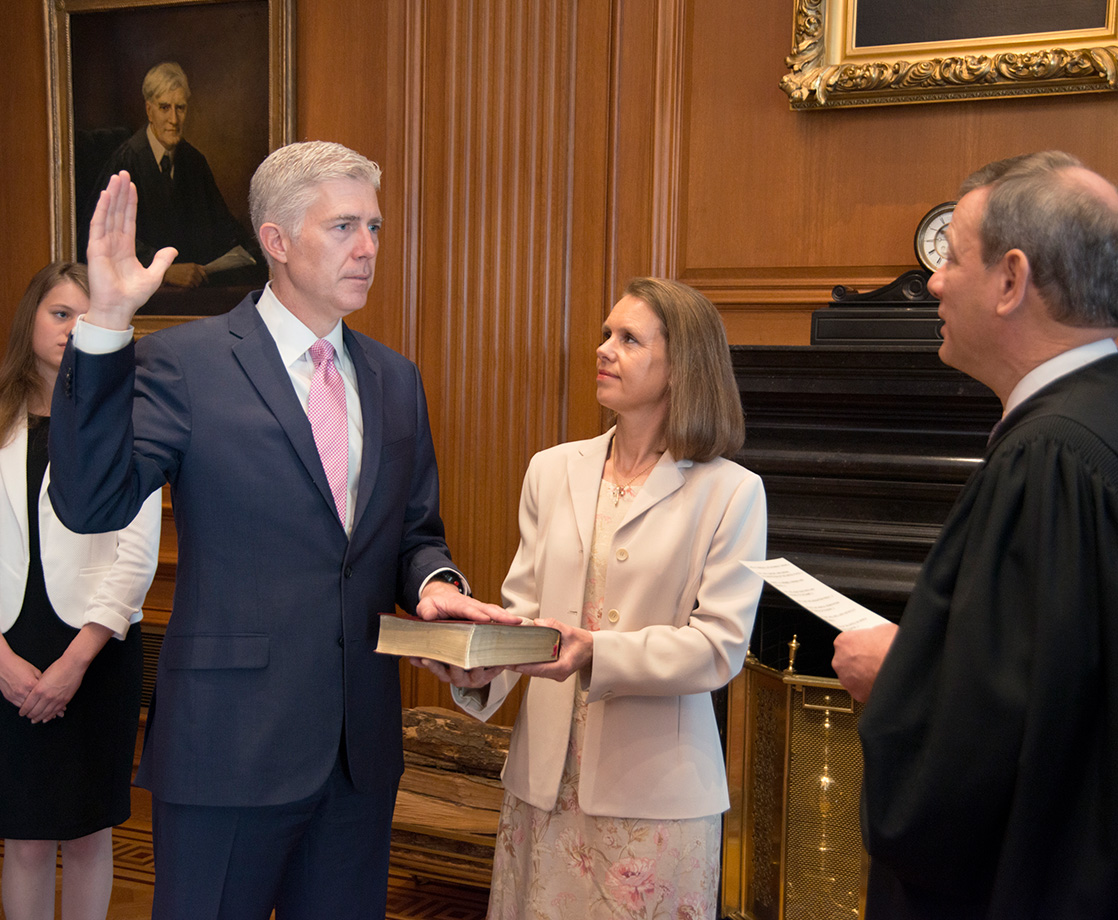For a while, Justice Neil Gorsuch seemed concerned with the Trump Administration’s unique leadership style. He said he wouldn’t hesitate to rule against the 45th Chief Executive if the law required it — he even called Trump’s attacks on the judiciary “disheartening.” But as soon as he started making decisions with his fellow Justices, it became clear that all of his “lex est rex” posturing may have just been reassuring noises.
In April, Gorsuch took his place on the bench to make his first ruling as a member of the Supreme Court. The case, McGehee v. Hutchinson, involved the fates of eight inmates supposed to be executed by the state of Arkansas less than two weeks after the Supremes heard the case. As Justice Stephen Breyer explained in a dissenting opinion, “The reason the State decided to proceed with these eight executions is that the ‘use by’ date of the State’s execution drug is about to expire.” The executions, which became the first in Arkansas since 2005 after Gorsuch and his fellow rightists got their way, were rushed through by the state’s governor so that the state could kill these men before the “drug” expired.
If that seems largely arbitrary and cruel, it’s because it is both. But that shouldn’t surprise anyone familiar with Gorsuch’s record in lower courts. In Hobby Lobby Stores v. Sebelius and Little Sisters of the Poor Home for the Aged v. Burwell, he attacked women’s health care by maintaining that Obamacare’s employer health care mandates could “possibly have the effect of destroying a fertilized human egg,” and plainly interpreted “religious freedom” to include un-American discrimination. In Planned Parenthood Association of Utah vs. Herbert, Gorsuch ruled against women’s health again, saying “It is undisputed… that the governor was free as a matter of law to suspend the funding [to PP].” In Wilson vs. City of Lafayette, he showed up for abusive cops. In fact, his time on the 10th circuit court is replete with decisions that paint him as one of the more right-leaning judges to sit on the Supreme Court in decades.
Granting Arkansas’ satisfaction for its soon-to-expire bloodlust was a perfect start for such a judge on the highest court, whether he tried to make folks believe he would stand up to his Orange Autocrat benefactor or not. And his tendencies haven’t softened in the months since his arrival on the highest bench in the land. When the Supreme Court roundly upheld a ban on big-money gifts to campaigns, Gorsuch dissented, livid that the sacred rights of billionaires and oligarchs had been called into question. He and Clarence Thomas, the other unhinged crypto-fascist on the bench, were alone in their dissent, firmly establishing them as the right fringe of this court. A month later, in June, he dissented again, this time when the court upheld Arkansas’s same-sex marriage birth certificate laws before he and Thomas again found themselves alone in figuring that Trump’s travel ban should be upheld. Conservatives, at this point, decided quite rightly that Gorsuch was indeed the hero they had been promised.
Acton institute senior editor Joe Carter told the Washington Examiner as early as May, "Gorsuch has established himself as a champion of religious freedom, and a Justice willing to place limits on the power of the state. By taking such a bold stand, he's showing he may be the worthy successor to the great Justice Scalia we've been hoping for." Carter hits the nail on the head: We’ve got another Scalia to contend with.











